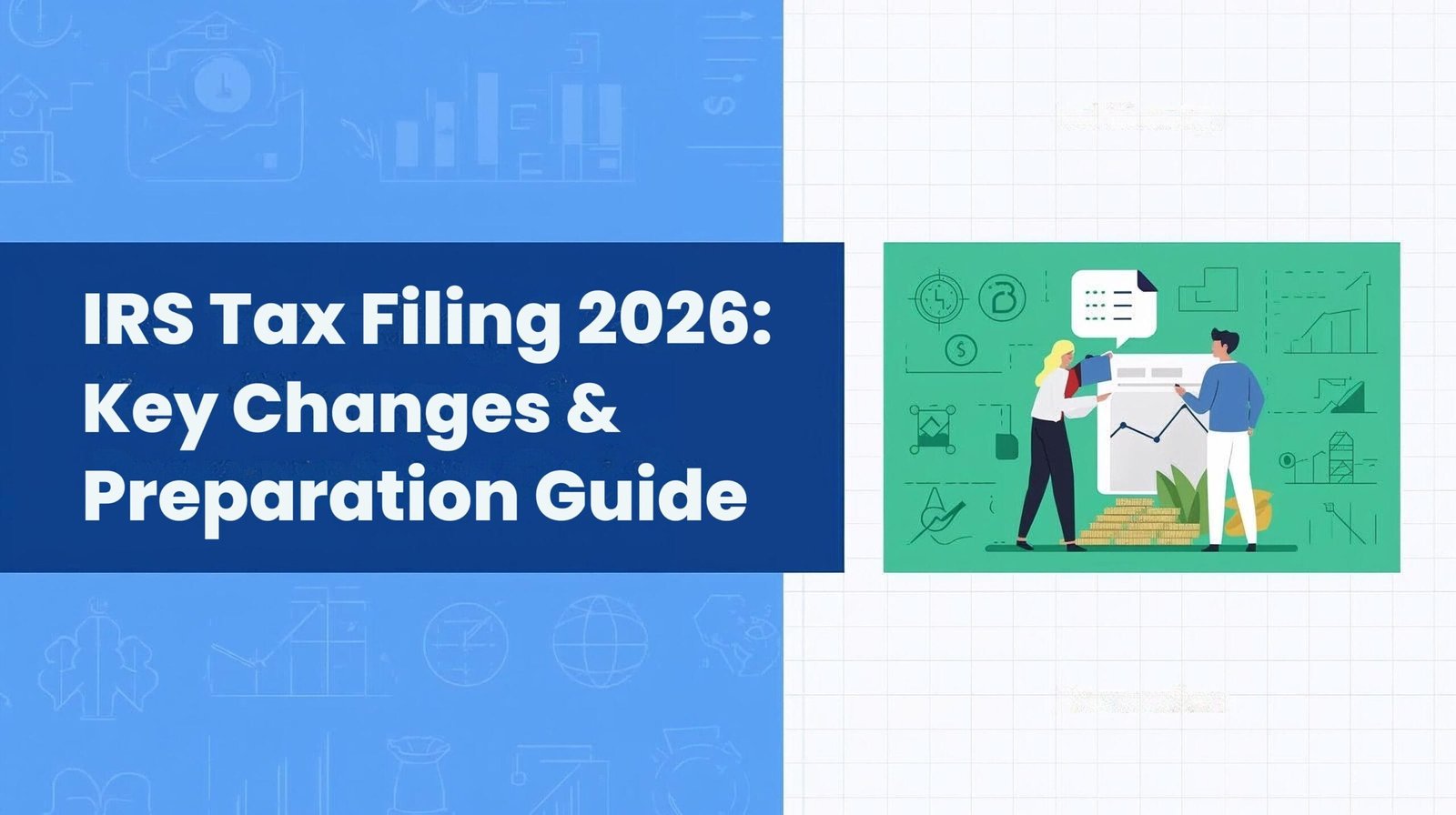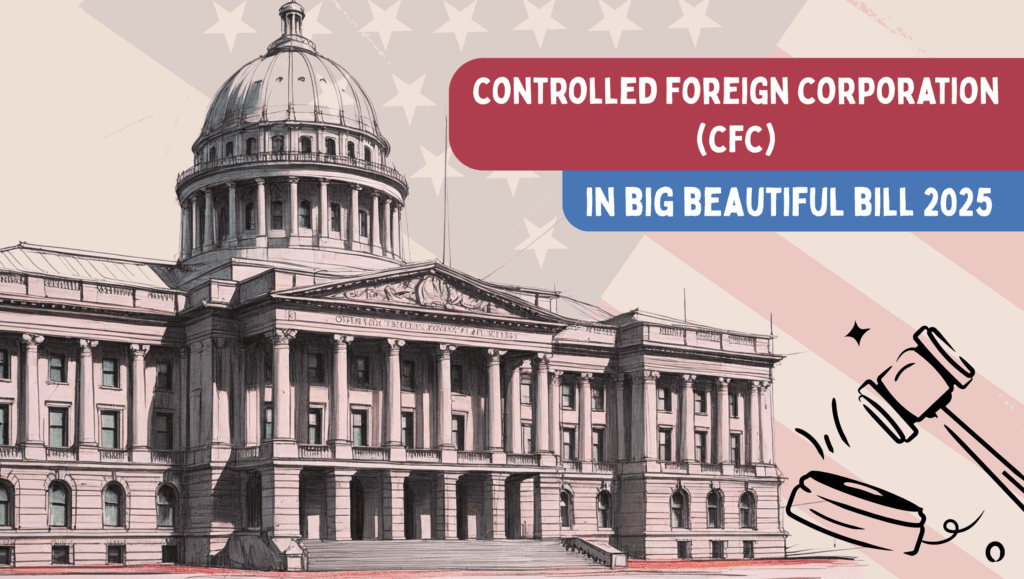
We Make Tax Filing A Breeze
Home » Big Beautiful Bill: Key Changes for US CFCs & International Tax

The landscape of U.S. international taxation is in constant motion, and for businesses operating globally, staying informed is not just a best practice it’s a necessity. The One Big Beautiful Bill Act of 2025 (OBBBA), a landmark piece of legislation, has introduced a series of crucial changes that fundamentally alter the way certain international tax provisions are applied. For U.S. shareholders of Controlled Foreign Corporations (CFCs), these changes are particularly important and require careful planning.
At TheTaxBooks, our goal is to provide clear, expert guidance on these complex topics. Let’s break down the key CFC-related provisions in the new law.
Signed into law on July 4, 2025, the OBBBA is a comprehensive bill that makes several provisions of the 2017 Tax Cuts and Jobs Act (TCJA) permanent and introduces new rules. While the bill covers a wide range of tax topics from individual rates to clean energy credits its international tax provisions are among the most impactful for multinational businesses, especially those dealing with CFCs. These changes are generally effective for tax years beginning after December 31, 2025.
One of the most significant overhauls in the OBBBA relates to the Global Intangible Low-Taxed Income (GILTI) regime. The law introduces several modifications that directly affect how U.S. shareholders calculate and pay tax on their CFCs’ earnings.
The bill officially rebrands the GILTI regime as “Net CFC Tested Income” (NCTI). This name change reflects a broader shift in the tax base, which we’ll explore next.
To offset some of the effects of the new rules, the bill also changes the deduction available for U.S. corporate shareholders. The Section 250 deduction is reduced from 50% to 40%. This, combined with the elimination of the tangible asset return, raises the effective tax rate on a U.S. corporate shareholder’s NCTI inclusion from the current 10.5% to 12.6%.
A taxpayer-favorable change is the reduction of the foreign tax credit (FTC) “haircut.” Previously, a U.S. shareholder could only claim 80% of foreign taxes paid or accrued by a CFC against its GILTI inclusion. The new law lowers this haircut, allowing U.S. shareholders to claim 90% of those foreign taxes.
Another major change affects the very definition of a CFC.
Before the TCJA, a U.S. subsidiary in a foreign-parented group would not be treated as a CFC. However, the TCJA’s rules on downward attribution changed this, leading to many U.S. subsidiaries being treated as CFCs and thus subject to GILTI and other rules, even if they were part of a foreign-controlled group. This created significant compliance and tax challenges for multinational structures.
The OBBBA addresses this by reinstating the pre-TCJA limitation on downward stock attribution. This means that a foreign corporation’s stock owned by a foreign parent will no longer be attributed downward to a U.S. subsidiary for the purpose of determining CFC status. While this is a welcome reversal for many, it’s worth noting that the bill also creates a new Section 951B to ensure foreign-controlled U.S. shareholders are still subject to some form of inclusion rules.
In addition to the major changes above, the bill includes several other important provisions.
The bill makes permanent a beneficial rule that was set to expire at the end of 2025. The “look-through” rule prevents certain payments, such as dividends, interest, and royalties, between related CFCs from being treated as Subpart F income. This is a crucial provision for simplifying intercompany transactions within a multinational group.
The OBBBA also provides clarity on how to handle Subpart F and NCTI inclusions for shareholders who own stock in a CFC for only part of the year. The law specifies that a shareholder must include their pro rata share of the income for any portion of the year they held the stock, ensuring a fair and clear calculation.
Understanding and complying with these new CFC rules can be a daunting task, especially for businesses with global operations. The implications on your tax liability and reporting requirements are significant. This is where expert guidance is essential.
At TheTaxBooks, we specialize in international tax filing and US business taxation, including Form 5471 and Form 5472 filings. Our team, led by Principal Consultant Kishore Chennu (MBA, CMA, EA-IRS), has extensive experience helping businesses from around the world, including India, navigate the complexities of US tax law. We can assist you in understanding how these new CFC rules impact your specific situation and ensure your business remains compliant.
Whether you are an international business planning to expand into the U.S. or a U.S. company with foreign subsidiaries, these new rules require a re-evaluation of your tax strategy.
The One Big Beautiful Bill Act of 2025 represents a new chapter in U.S. international tax law. For CFCs and their U.S. shareholders, the changes to the GILTI regime, the reinstatement of downward attribution rules, and other provisions necessitate a fresh look at tax planning and compliance.
Staying ahead of these changes is key to minimizing tax liability and avoiding costly mistakes. By partnering with a qualified and experienced tax professional, your business can confidently navigate this evolving landscape.
To learn more about how you can reduce your taxes and save money, check out the helpful resources on our blog or contact us today to schedule a consultation.